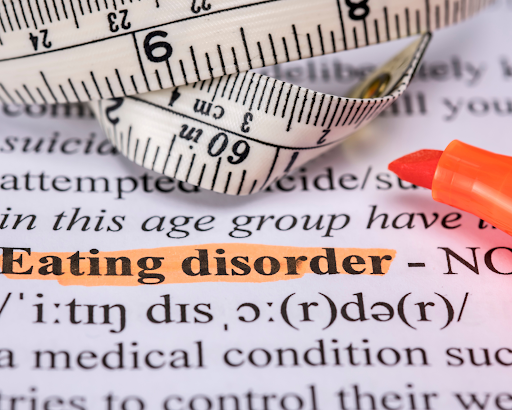 Despite evidence to the contrary, there is still the idea that eating disorders are more of an issue with teen girls than with teen boys. Many may think there’s little to no need to worry about their teen son, who may be showing some signs of an eating disorder.
It's important to note that there is no one look for an eating disorder. The mental image many of us have is often very much off base and can also vary between girls and boys. The first step for any parent is to understand more about eating disorders and how the unhealthy relationship between food and weight may be based on something else in your teen’s life.
Despite evidence to the contrary, there is still the idea that eating disorders are more of an issue with teen girls than with teen boys. Many may think there’s little to no need to worry about their teen son, who may be showing some signs of an eating disorder.
It's important to note that there is no one look for an eating disorder. The mental image many of us have is often very much off base and can also vary between girls and boys. The first step for any parent is to understand more about eating disorders and how the unhealthy relationship between food and weight may be based on something else in your teen’s life.
Types of eating disorders
Like most mental health issues, eating disorders are rarely black and white. There are many shades in-between, which can sometimes make recognizing an issue quite challenging. Here are some of the eating disorders seen most often in teens.- Anorexia nervosa. Those who have anorexia view themselves as being overweight, even if they are very underweight. They tend to restrict their food intake and overexert themselves physically to try and lose more weight.
- Bulimia. Those who have bulimia tend to try and purge the food that they’ve eaten. The method they use to purge could involve laxatives or throwing up. Both of which can lead to other serious complications.
- Binge eating disorder. Those who have binge eating disorders do not restrict their calories or attempt to purge the food they eat. They eat large amounts of food, sometimes in secret, to the point of discomfort.
Knowing the signs
Each type of eating disorder will have symptoms that differ from the others. Each does involve a focus on food and eating, with some including an extreme preoccupation with image and weight. This preoccupation can start interfering with other aspects of your teen’s life. This is why it’s essential to recognize an eating disorder's mental, behavioral, and physical signs.- Sudden and rapid weight loss
- Limiting and restricting the types and quantities of food being consumed
- Avoiding eating in public or around family
- Secretive eating
- Being preoccupied with calories, fat content, food, diets, and weight in general
- Wearing layers to disguise rapid weight loss
- Refusing to eat specific foods or denying hunger if meals are considered too unhealthy
- Constant monitoring of weight and expressing constant needs to burn off the calories consumed
- Working out excessively and even in secret
- Complaints about stomach pain and other related gastrointestinal concerns
- Trouble focusing at school
- Dizziness and fainting
- Complaints about feeling cold
- Hair loss, dry skin, brittle nails, and muscle weakness
Stepping in to help your Teen Son
How can you help your teen? Many teens may react with anger when confronted about their eating disorder. How can you navigate this and help your teen?- Approach your teen when things are calm and not when he’s in a heightened emotional state.
- Try not to use an accusatory tone. Be calm and use a neutral tone that won’t put your teen on the defensive.
- Get help and support from other family members who may have experience with eating disorders.
- Boundaries are always important at home, but they need to look slightly different with an eating disorder. Meals should be enjoyed together as a family, for example.
- Stop negative self-talk. Your teen listens to the things that you say about yourself. Stop talking about your weight, your appearance, or defining foods as good or bad.
- Have your teen help you plan and prepare healthy meals without a focus on food groups or calories.
- Work with a therapist with experience with teenagers and eating disorders. Therapy will be where your teen works through his mental health concerns and recognizes why he has an eating disorder.


Leave a Reply